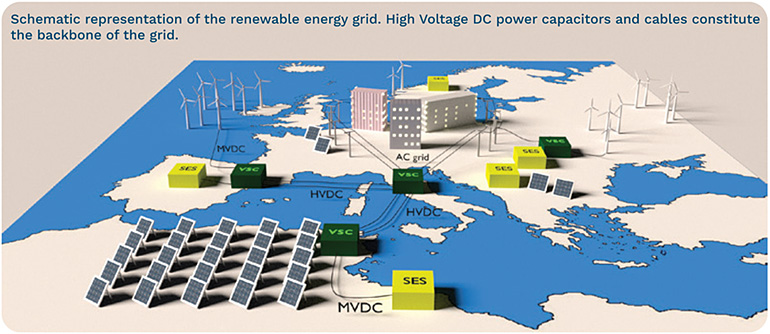Driven by energy security and diversification considerations, and by global environmental commitments, adoption of renewable energy technology is on the rise. This trend is already clear as governments around the world have started focusing on renewable energy as an important part of the energy portfolio.1
In Europe, renewable energies are going to play a fundamental role in the green transition initiated by past Commissions and now one of the top targets of the new Commission.2 Since clean and green power is no longer an idealistic aspiration but an economically compelling and sustainable proposition, the next decade will see further growth and penetration of renewable energy in various countries.
Renewable power capacity grew 8% in 2018, led by wind energy and solar PV. For the last four years, more renewable power capacity was installed than fossil fuel and nuclear power combined, and renewables now account for over one third of global power capacity.3 By 2030, 14% of EU energy will come from renewable sources.
In this context, technology innovations in the value chain will provide a two-fold competitive advantage to forerunners (both Countries and companies): (i) lower costs due to improved material technology; (ii) higher production capacity due to higher energetic efficiency. The EU has funded projects that will enable reaching such competitive advantage. Among them, GRIDABLE4 is a promising European project, which connects renewable energy sources to the energy grid in a more efficient way through innovative materials. The GRIDABLE project is on a route for cost efficient, high quality and safe production of polymer materials with interspersed nanosilica particles as major building blocks of future smart energy grid. The new materials provide better insulation properties to enable smaller insulation thicknesses and thus smaller components that are made of recyclable thermoplastic materials. In addition, they are more energy efficient compared to traditional thermoset plastics.
The GRIDABLE consortium is composed of eight partners with expertise in plastic material research, material development and engineering, and industrial manufacturing and processing of high-voltage components. The innovation brought about by GRIDABLE will result, new DC-cables and power capacitor units.

1. "Global trend in renewable energy" KPMG Singapore, 2016
2. European Commission - press release
3. REN21 - Renewables now
4. This project has received funding from the European Union’s Horizon 2020 research and innovation programme under grant agreement No 720858